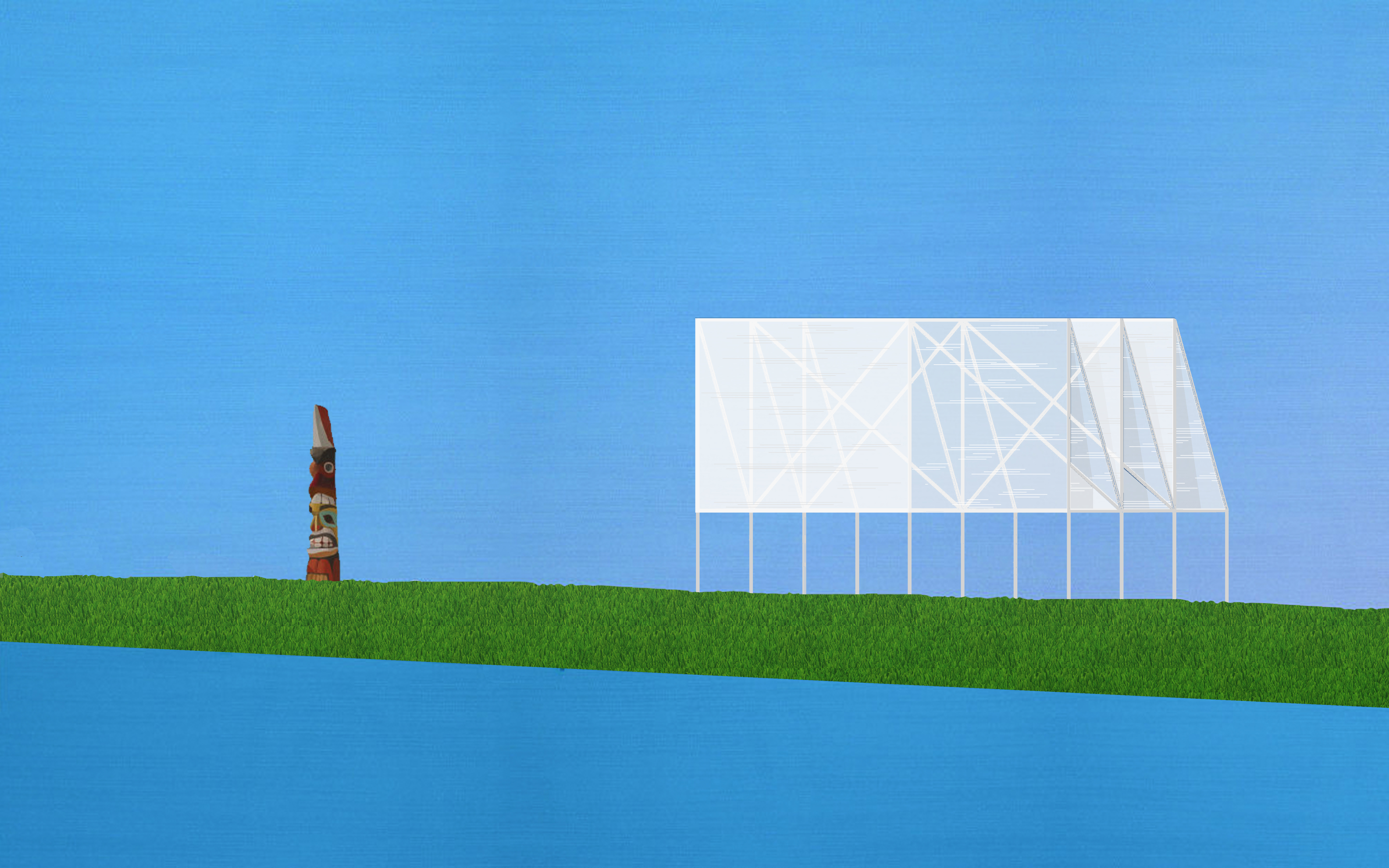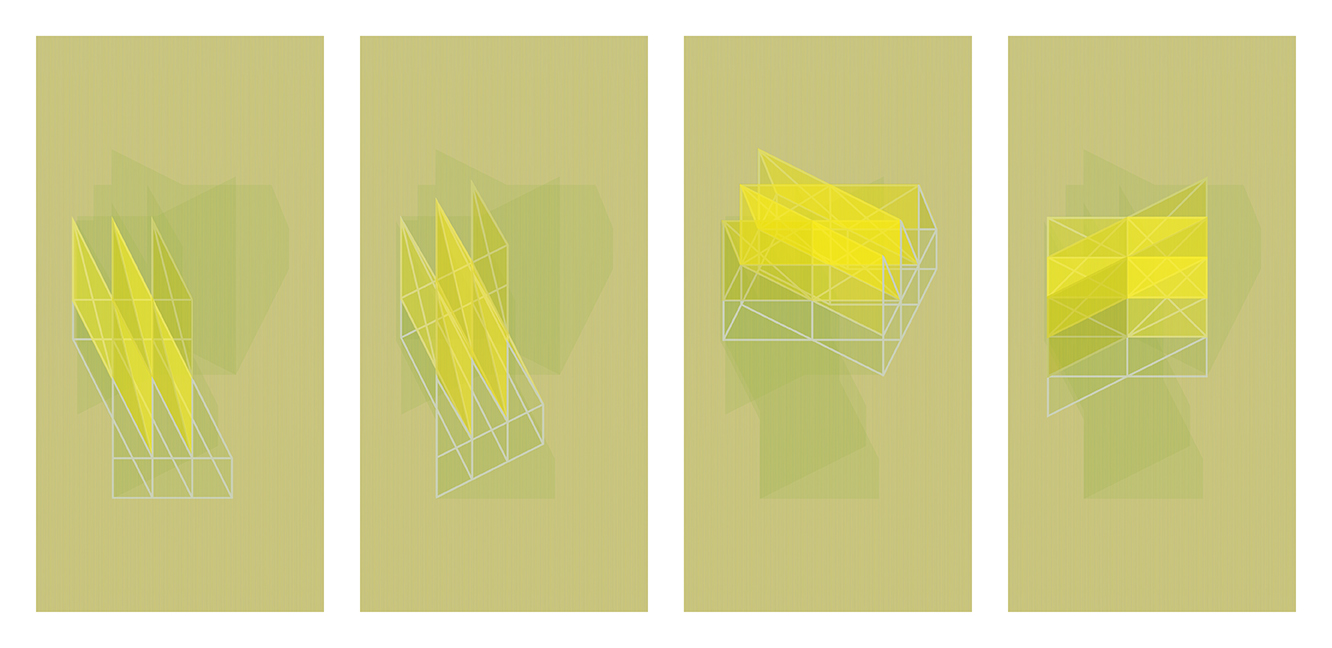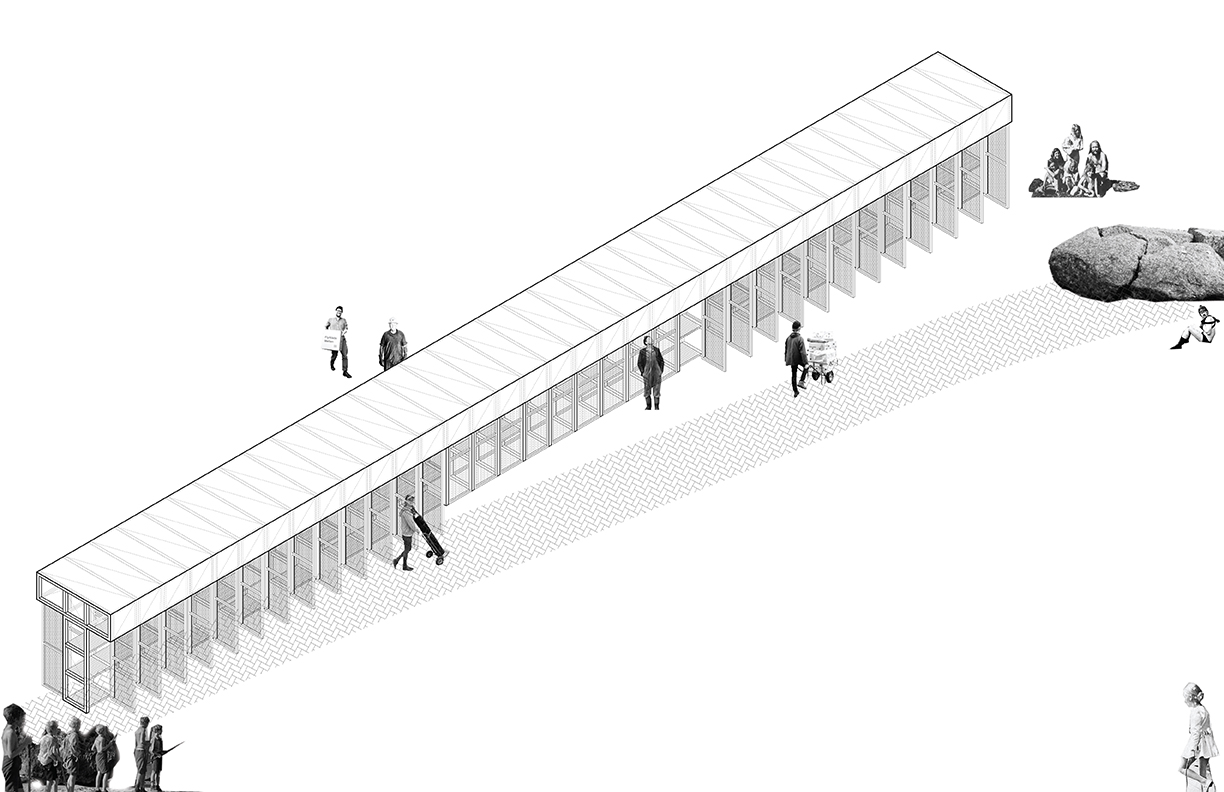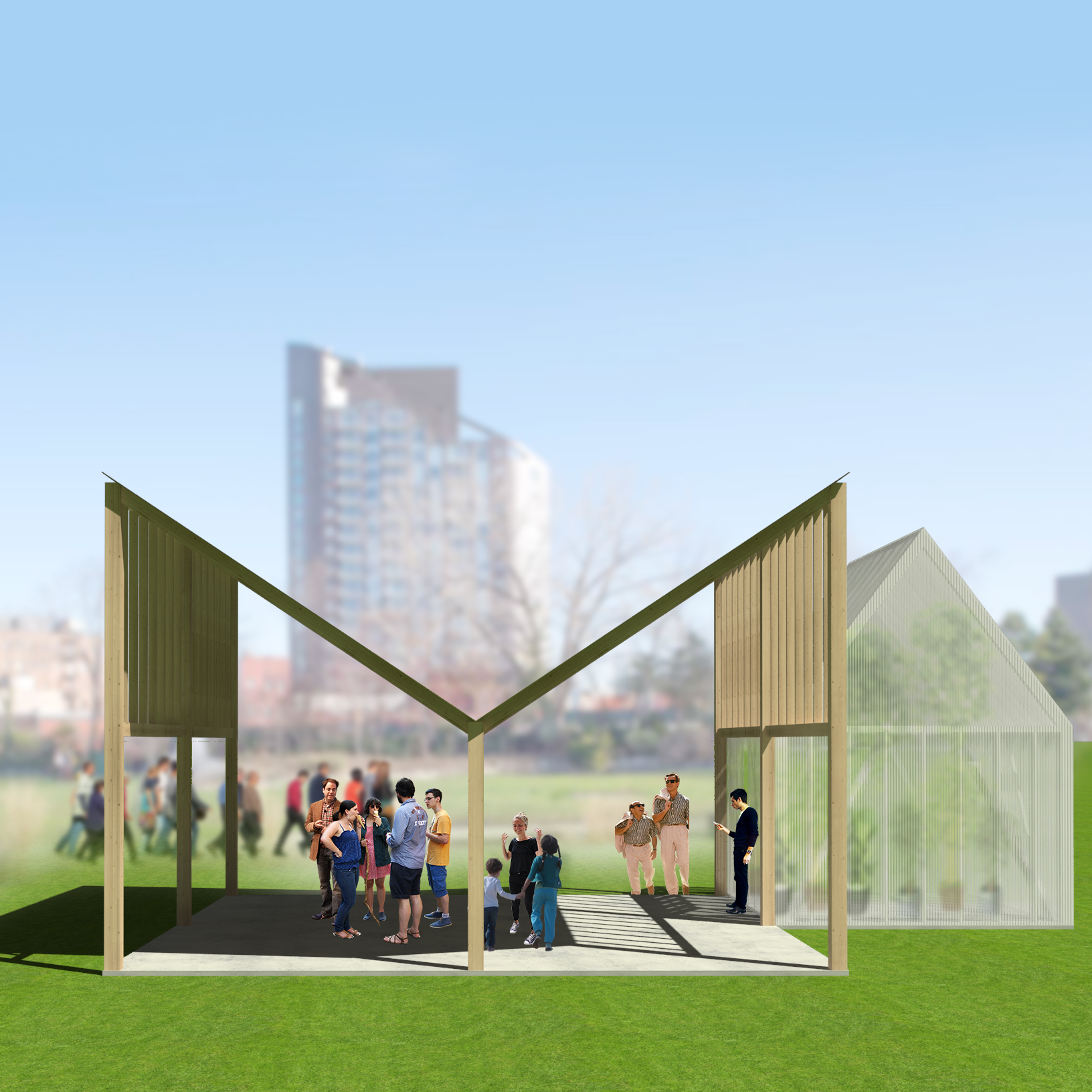Notable entries IV: Diagrams, modules, and repetition
Three Folly/Function 2016 proposals used diagrams, modules, and repetition to derive form from information
Folly No. 4
In their proposal for Folly No. 4, Alfie Koetter and Emmett Zeifman invert the traditional relationship between drawing and information. In architecture, a drawing is usually the abstraction of a structure, while this proposal claims to tangibly “pull information out of a drawing,” communicating an idea that could not have existed before the act of drawing. This project “intuits volume and form from a drawing” to reconceive a working pavilion using diagrammatic information. The folly “learns” its form from the drawing that doubles “two rectangles, one skewed and one superimposed over the other.”
The T and the Rock
The T and the Rock, a project by Esteban deBacker and Cristina Liminana, employs modules and a calculated relationship between objects to define space. Their proposal for an education module (the T) and a topographical barrier (the Rock) call on “two artificial objects to define a programmatic landscape.” Simple, adaptable, and modular, the education module incorporates a repeating T shape that creates a space for “a platform of exchange.” Pairing the regular with the irregular, these two modules define the volume of the proposal for this site and remain adaptable to material and economic constraints of the park.
Twins
Twins by Christina Draghi and Andrew Kao employs opposition to create two paired sheds that are seemingly at odds with one another. The first is a large, open shade structure with a roof in the form of a valley that sheds water. The second is a smaller, enclosed greenhouse with a ridge roof that collects water for its plants. Diagrammatically opposite in form and intention, the sheds complement each other, operating together as architecturally dichotomous, dizygotic twins.
Folly/Function is a competition co-sponsored by The Architectural League and Socrates Sculpture Park that invites emerging architects and designers to propose contemporary interpretations of the architectural folly.






